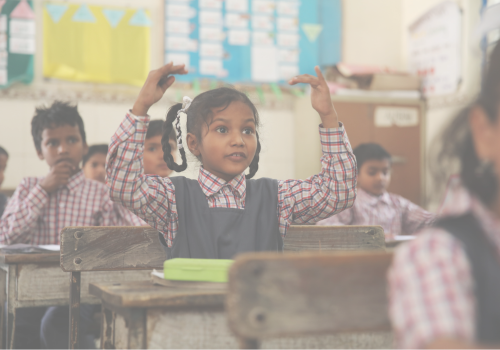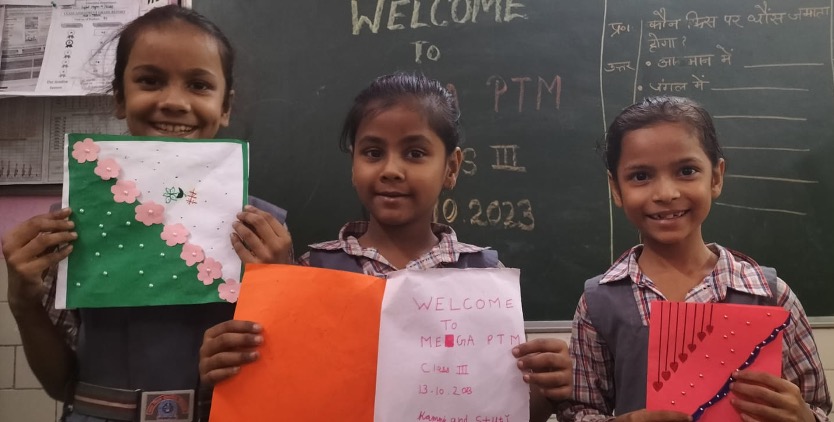
Research suggests that when a school model places the child at the center using engaging and motivating practices that make them feel supported and if the same consideration is extended to the parents, then there is a higher likelihood of the children staying driven to remain in school and do well.
When it comes to school-parent relationships, government-mandated spaces (such as School Management Committee–SMCs and Parent Teacher Meetings-PTMs) that facilitate parent engagement have the potential to be utilized more effectively. Our work emphasizes collaboration and agency of everyone who works with a child – teachers, parents, and school leaders to share, express, and ask meaningful questions and build a collective vision for children. Through dialogue with teachers and school leaders, we delved into the inhibitors of effective parent engagement spaces.
Many educators and parents face hurdles in building strong parent-teacher partnerships. Limited access to tools and resources makes it difficult to design safe and engaging communication channels. Furthermore the full potential of parents’ impact on student learning is still not visible, and lack of the time and resources leads to it getting deprioritised.
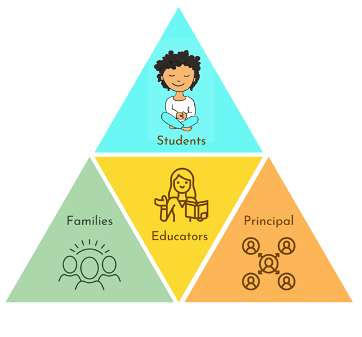
We ensured that the parent engagement spaces reflected the voice of parents, extended concern and respect for their well being, leading to an increase in parents’ receptivity. During a session, we facilitated a feelings check in with parents. One of the parents got emotional and shared that nobody had ever asked how they felt or seriously cared about the response.
Another key way to achieve this has been through collaboration with stakeholders – involving school principals and teachers to co-design the spaces using structures like planning templates, thinking models, etc that allow teachers to implement their own ideas in a creative and focused manner. Increased collaboration and accountability between school and community led to significant insights for the educators, who then accordingly created support strategies for children. When we informed a teacher about one of her student’s learning disabilities, she ‘modified her support strategy and spent more time with the child to ensure that they feel supported’.
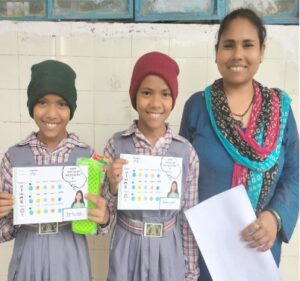
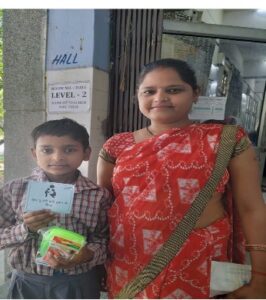
Last year, we also oversaw the introduction of progress cards and the design and language allowed the parents to understand the children’s learning levels in Maths, English and Hindi. Instead of giving an update of the marks/grades their children scored in these subjects, the progress card used simpler language to map the progress of students and celebrate small shifts and growth.
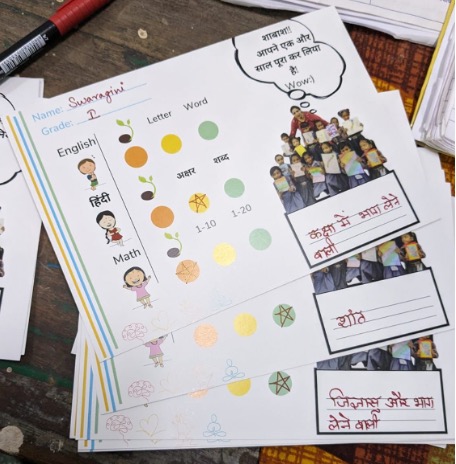
Previously, parents received only marks or grades without clear guidance on how to support their children’s learning at home. Additionally, important assessment data, such as the SEF’s assessment, was inaccessible to parents. When we introduced the progress cards to parents, they were really happy and able to connect better to their children. Some of them shared how they will stick them on the wall, support their child better in that particular topic/concept or share it with the tutor, etc. For example – the parents get to know whether the children are at an ‘akshar’, ‘word’, ‘paragraph’ or ‘story’ level in English and Hindi.
Many parents now want to take ownership of working for their children’s educational development. *Aashna Didi , an SMC member and a single mother of a Grade 1 child who is studying in one of our partner schools, has become a champion initiating conversations and expressing concerns to encourage other parents and members to participate and ask more questions at the parent engagement spaces like PTM, School Committee Meeting, etc.”
This helped us to build parents’ agency to contribute to their child’s learning. With focused PTMs, we could have more open, effective and clear conversations. We were able to leverage WhatsApp groups as a communication channel and conduct more community visits and debriefs with educators.
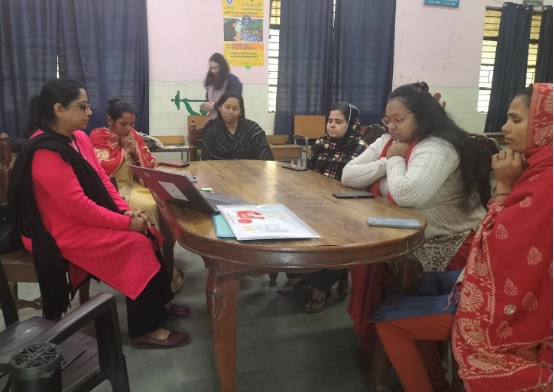
Giving parents a safe and welcoming space where they can freely share their thoughts, treating them with fairness and respect, and considering them as important partners in their children’s education helps to make them feel involved and empowered. This builds a strong sense of connection and support among parents in the school community.
At the Simple Education Foundation, we want all children to thrive in school and life. We see strong partnerships between teachers, principals, and parents as a key lever in bringing this shared vision to life and building a school system that serves our children’s needs. Through initiatives like this, we will continue to ensure they are equipped to create safe and powerful experiences for children.
(*- Name of the parent – stakeholder has been changed)
ABOUT THE AUTHORS:
Ganesh Singh is a Sr. Associate for Community Engagement and Government Relationships. He has been working closely with the school, school educators, kids and parents! He advocates for meaningful collaboration between the community and school to create a positive and safe learning environment for the kids in both school and home. To learn more, find Ganesh @
https://www.simpleeducationfoundation.org/team-1/ganesh-singh- /
Twitter – @ganeshs65632523 / Instagram – @ganesh.bafila
Sanjana Agarwal is an Associate, Communications & Fundraising at SEF. She has been working in the development sector for the last 4 years. She aims to combine her interest in educational programs with her passion for communications, especially writing! To learn more, find Sanjana @
https://www.simpleeducationfoundation.org/team-1/sanjana-agarwal /
Twitter – @sanjanaa022 / Instagram – @sanjana.aga
ABOUT THE ORGANISATION:
Simple Education Foundation is a Non-Profit Organization reinventing India’s government schools to provide high-quality learning. It collaborates with government schools (known as Centres of Excellence) to ensure every child studying there has access to powerful learning experiences.

